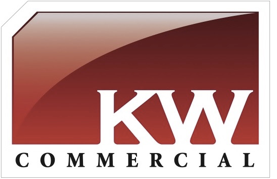I recently came across a number of articles and social media posts where investors had shared horror stories about their real estate investment experiences, and it got me thinking. . Some of the investors were professionals like doctors and engineers, and others were not even qualified to invest in real estate because they had to borrow the initial seed money. So I reached out to successful commercial real estate investors I knew and asked them to share with me their best advice when it came to real estate investing.. Below are 15 of the best investing advice they shared with me:
- Professionals like doctors and engineers are taught to reduce the risk to zero in their professions. In investment, the risk is inherent. You cannot and shall not reduce the risk to zero, because there is a relationship with risk and reward. You need to focus on what level of risk you are comfortable with and can afford to take. If you take more risk than you can handle, you eventually could experience a loss. And if you take a very small risk, you will limit your rewards. The key is know yourself and know your risk tolerance. A good real estate attorney, a CPA, or an experienced real estate advisor may be able to assist you with that.
- Educate yourself or work with a team of experts to educate yourself by taking a variety of real estate classes, and then make a decision. Do not rush into your investment.
- Once you decide what asset class you would like to invest in, learn the due diligence process and its components. Get help from professionals.
- Study your market and sub-market. Learn about the demographics, traffic patterns, job growth, population growth, the economy, the competition, the lease rates, property taxes, vacancy and absorption rates, and new developments.
- Shop for your mortgage. The right mortgage will give you enough margin to have a healthy cash flow. You may lose your property to the bank if you select a bad mortgage.
- Become familiar with the closing process and deadlines. Read the documents, and if you do not understand them, ask for assistance.
- Do not manage a commercial property yourself. Get a professional property manager who can dedicate the necessary time and effort to managing your property.
- Study financial reports closely. Make sure you are not spending more than you should.
- Require your property manager to conduct preventive maintenance and have a routine schedule to look for what needs to be fixed and repaired.
- Make sure your leases are NNN and at market rates. Also, make sure to include annual bumps in your leases to keep up with inflation.
- Fill your vacancies ASAP.
- Always look at market conditions. Is it going up, down, or holding steady?
- A combination of annual rent increases, filling vacancies, and market growth will help you increase your cash flow and your ROI and it will also increase the value of your property.
- Shop around before your initial loan is up for refinance. If you have increased the value of your property and have paid down the initial loan, then look into cashing some money out. But do the cash out only if the building can support the mortgage payment. Keep your LTV at refi around 55%.
- If you were able to cash out, first make sure you have enough reserves. Lenders require investors to have reserves. If you are O.K. with your reserve level, then look to acquire your next investment.







